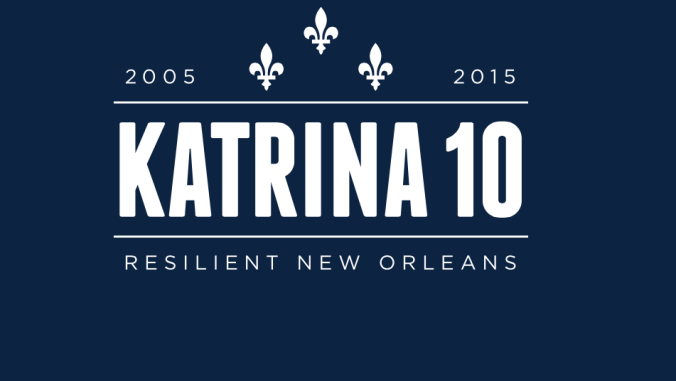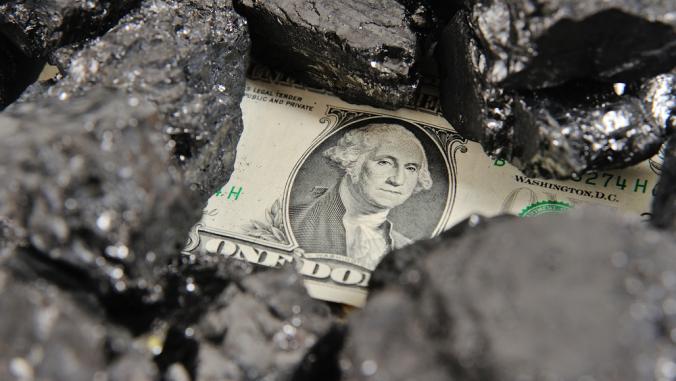Apple, Google and bribing employees to hit corporate climate goals
Want to get your team on board with the company's sustainability plans? Big-name businesses are shelling out to make it happen.

In the volumes of literature on the ever-popular topic of employee engagement, office perks and corporate programs like volunteer days tend to reign supreme.
But what about offering staffers and even top executives cold, hard cash to raise the stakes for participation in a company's sustainability efforts?
Google, Apple, Bank of America, Best Buy, HP and Microsoft are among those giving financial incentives based on sustainability metrics a shot, according to a round up of corporate disclosure documents released this week by the environmental nonprofit CDP.
The report frames compensation matters as further evidence that companies across industries are taking climate change more seriously in the run-up to the COP21 United Nations climate talks next month.
"The data shows significant improvements in corporate management of climate change," according to the organization's recent CDP Global Climate Change Report 2015 (PDF). "More companies are incentivizing employees through financial and non-financial means."
But with only a handful of companies — several of which already rank among the top corporate climate actors — how applicable is the topic to the broader business world? And better yet, do these programs actually work?

Exactly how, and how much, various employees can add to their paychecks by helping a company hit its sustainability goals varies widely, according to the data collected by CDP.
Often, imperatives such as product waste reduction or cost-saving energy efficiency measures are one of several contributing factors for executive performance reviews or bonuses. Some programs are broader in nature, offering cash back for employees who opt to purchase low-carbon vehicles (shrinking the company's transportation footprint) or making environmental donations on behalf of employees who make an effort on corporate sustainability.
While it's significant that sustainability is mentioned in any capacity alongside executive compensation in particular, it remains unclear how much weight the issue really holds when stacked up against priorities like overall sales or quarterly profits.
How environmental performance is measured also depends on the company.
Railroad company CSX, for example, ties its COO's pay to specific scope 1 and scope 2 emissions targets. Apple, meanwhile, cites a desire to go beyond easily quantifiable environmental metrics — an admirable goal, but one that could make it difficult to track progress or replicate at companies that don't also have ambitious clean energy goals.
"Some companies directly link executive compensation with very specific environmental metrics, such as (greenhouse gas) GHG emissions targets," the CDP report noted. "Apple takes a different, holistic approach to driving environmental performance from the highest levels of the company."
Apple evaluates executives who oversee product development teams against criteria including energy efficiency, à la Energy Star certifications, along with packaging and product lifecycle issues. All of these factors "may be considered when determining the amount of the individual’s annual cash bonus or whether the individual should remain as a member of the executive team," CDP reported.
That sustainability "may" affect pay is one gray area, but also at issue is that more companies are using their green credentials as collateral to attract progressive young workers. That dynamic makes it even more important to separate marketing and human resources rhetoric from quantifiable environmental impacts.
The contest for talent also makes it harder to glean details about pay packages including sustainability, because companies may hold attractive financial incentives close to the vest. It's a vivid example of the "coop-etition" trend, or how much information companies are willing to share with competitors in the name of combatting climate change.
Seeing green
Within the pool of companies identified in the CDP report, particularly those in the tech sector, most do have notable clean energy and efficiency goals. Tying implementation of programs related to those goals to worker pay provides a glimpse into how large, sometimes bureaucratic, organizations actually execute top-down sustainability mandates.
Most companies report different systems for employees on different rungs of the corporate ladder. C-suite executives at both Apple and HP are evaluated partially on sustainability performance, while Google's VP of technical infrastructure has bonuses tied to "meeting quarterly goals for improving sustainability."
In what is likely a nod to criticism that executives prize short-term profits over longer-term risks such as climate change, Apple notes that it seeks to reward executives "aligned with its shareholders’ long-term interests."
At Apple, employees directly responsible for day-to-day operations also often see pay tied to sustainability performance.
"Apple’s leadership has publicly stated the goal of powering every Apple facility entirely with energy from renewable sources," CDP noted. "Implementing these goals falls on the facilities managers, and their performance directly influences their monetary compensation."
Google also ties its facilities managers' potential bonuses to quarterly sustainability and efficiency targets, while HP links overall pay for energy managers to establishment and implementation of clean energy, energy efficiency and emissions reduction targets. Certain sustainability and business unit managers in areas such as data centers at Google, Best Buy, Bank of America, HP and Microsoft have bonuses or salaries directly dependent on progress toward sustainability goals.
Product efficiency is an overall compensation indicator for both engineers and product designers at HP, and Google ties data center engineer performance bonuses to meeting energy reduction targets.
Finally, when it comes to all employees, several companies have created programs to reward gung-ho internal environmental enthusiasts with awards, charitable donations, pre-negotiated discounts on home solar or more traditional public transportation subsidies. Bank of America has also given more than 7,800 employees a $3,000 reimbursement for buying a "new, eligible low-carbon vehicle."
While concrete examples of how companies reward green employees with some extra green are still relatively limited, there's also the school of thought in HR that participation in sustainability efforts helps with more existential struggles.
"It is not enough to give someone a volunteer opportunity and say that you've addressed the issue of employee engagement [and] employee empowerment," Aaron Hurst, author of a book on "The Purpose Economy," said in a talk at a GreenBiz event earlier this year. "It's the same as giving money for that one tree and not addressing the fact you've cut down 10,000."





